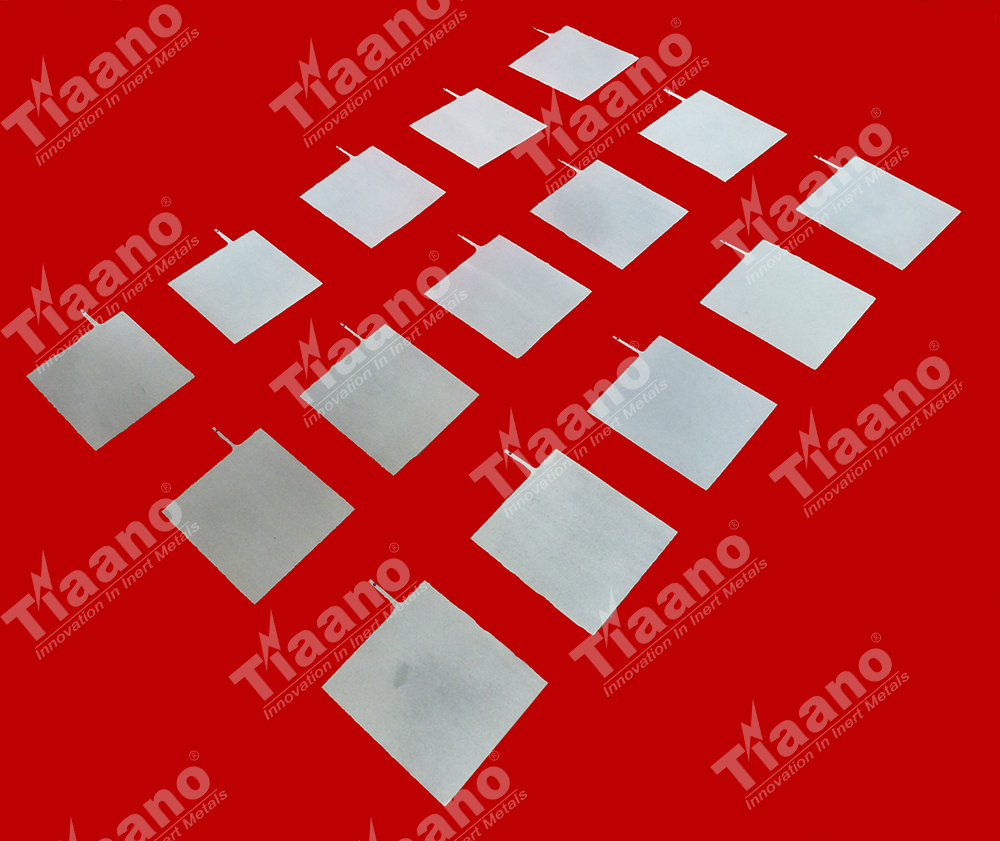Tiaano manufacturing different sizes and Shapes of platinised Titanium Electrodes (Positive Electrode and Negative Electrode) for water ionizers. The essential components of the ionization chamber are its two collecting electrodes, (the anodes and cathodes) the anode is positively charged with respect to the cathode.
The ionizer uses grade 1 titanium electrodes to be plated (Anodes and cathodes are plated) with a good electrical conductor with longevity built to last 10 years that will also not dissolve during electrolysis. Stainless steel was used for Water Ionizer electrodes in the late 1980's and was found not be a suitable material because they did not last more than a few years. The industry began using titanium platinum-coated Anode in the early 1990's because of its design life.
Water Ionizer (Ionization) Electrodes Types:-
Platinised Titanium Mesh Anode and Platinised Titanium Mesh Cathode
Platinized Titanium Sheet / Flat Anode and Platinized Titanium Sheet / Flat Cathode
Platinum Coated Titanium Perforated Sheet Anode and Platinum Coated Titanium Perforated Sheet Cathode
Platinum activated Titanium Slotted Sheet Anode and Platinum activated Titanium Slotted Sheet Cathode
Platinum deposited Titanium Rod Anode and Platinum deposited Titanium Rod Cathode
Platinum Titanium Seamless Tube Anode and Platinum Titanium Seamless Cathode
Specification for Water Ioniser (Water Ionisation) Electrodes:-
Electrode: Platinised Titanium Anode and Platinised Titanium Cathode
Substrate Grade (Titanium): 1 or 2 (as per ASTM Standard)
Substrate Shape (Titanium): Expanded mesh, Sheet or Flat, Rod, Tube etc…
Substrate Purity (Titanium): 99%
Catalyst Purity (Platinum): 99.99%
Platinum Thickness: 0.5 Micron or 1.0 Micron or 2 Micron (Based on Water Condition)
Assembly: 2 Plates, 3 plates, 5 plates and 7 plates & 9 plates
Dimension: Standard Size or custom made
